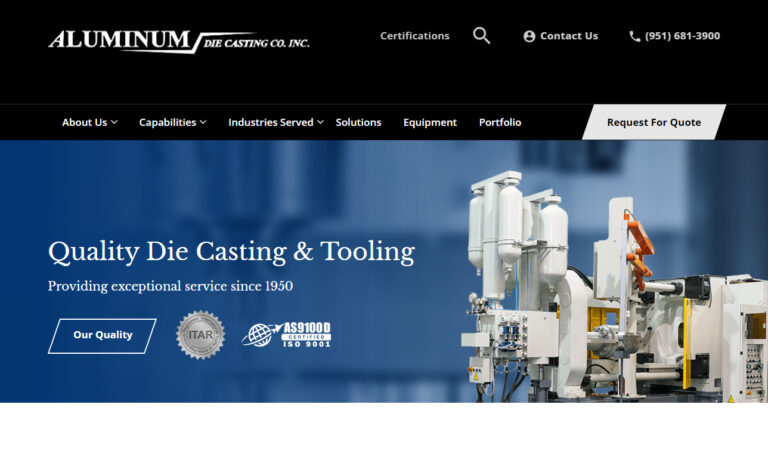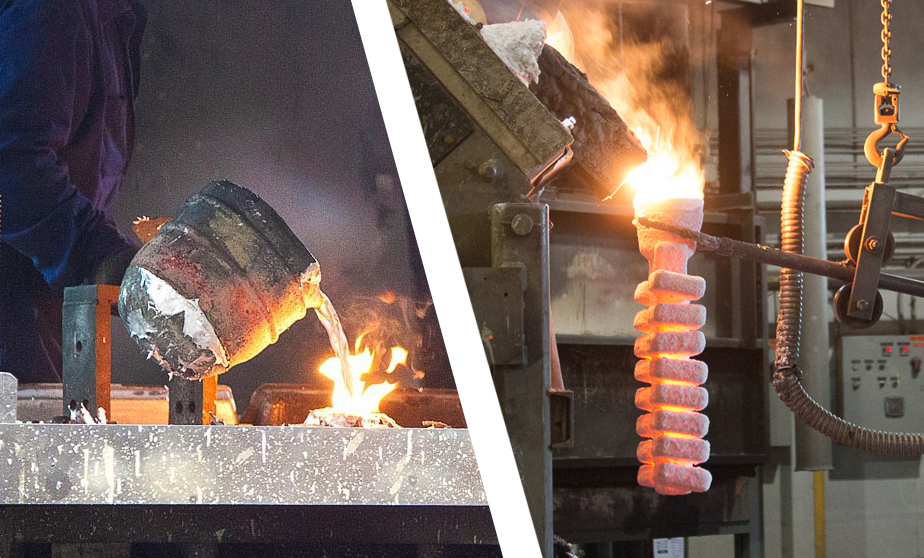Alcast Company Can Be Fun For Anyone
Alcast Company Can Be Fun For Anyone
Blog Article
Alcast Company Things To Know Before You Buy
Table of ContentsSome Ideas on Alcast Company You Need To KnowAn Unbiased View of Alcast CompanyAlcast Company - The FactsThe Best Strategy To Use For Alcast CompanyThe Alcast Company IdeasThe 8-Minute Rule for Alcast Company
The subtle difference hinges on the chemical web content. Chemical Comparison of Cast Aluminum Alloys Silicon promotes castability by decreasing the alloy's melting temperature level and improving fluidity during spreading. It plays a critical role in enabling intricate mold and mildews to be filled precisely. In addition, silicon adds to the alloy's strength and wear resistance, making it useful in applications where resilience is essential, such as vehicle components and engine elements.It also enhances the machinability of the alloy, making it simpler to process right into ended up products. In this method, iron adds to the general workability of aluminum alloys.
Manganese adds to the stamina of light weight aluminum alloys and improves workability (aluminum foundry). It is frequently made use of in wrought light weight aluminum products like sheets, extrusions, and accounts. The existence of manganese aids in the alloy's formability and resistance to cracking during fabrication processes. Magnesium is a light-weight aspect that offers toughness and influence resistance to aluminum alloys.
Alcast Company - Truths
Zinc improves the castability of light weight aluminum alloys and helps manage the solidification process throughout spreading. It improves the alloy's strength and solidity.

The primary thermal conductivity, tensile strength, return strength, and prolongation vary. Select suitable resources according to the performance of the target item produced. Amongst the above alloys, A356 has the greatest thermal conductivity, and A380 and ADC12 have the lowest. The tensile limitation is the contrary. A360 has the best return strength and the highest possible elongation rate.
Get This Report on Alcast Company

In accuracy casting, 6063 is fit for applications where detailed geometries and high-quality surface area coatings are extremely important. Examples consist of telecommunication enclosures, where the alloy's exceptional formability permits sleek and visually pleasing layouts while maintaining architectural honesty. In the Illumination Solutions market, precision-cast 6063 components produce stylish and efficient illumination fixtures that call for intricate forms and good thermal performance.
The A360 shows exceptional prolongation, making it ideal for complex and thin-walled elements. In accuracy casting applications, A360 is well-suited for markets such as Consumer Electronic Devices, Telecommunication, and Power Tools.
The Greatest Guide To Alcast Company
Its special residential properties make A360 an important option for accuracy casting in these markets, boosting product sturdiness and high quality. Light weight aluminum alloy 380, or A380, is a commonly used casting alloy with a number of unique attributes. It offers superb castability, making it an optimal choice for accuracy spreading. A380 exhibits great fluidity when molten, ensuring intricate and thorough molds are accurately replicated.
In precision spreading, light weight aluminum 413 radiates in the Customer Electronics and Power Devices industries. It's typically utilized to craft detailed components like smart device housings, video camera bodies, and power device casings. Its precision is impressive, with limited resistances up to 0.01 mm, guaranteeing remarkable product assembly. This alloy's remarkable deterioration resistance makes it an exceptional choice for outside applications, guaranteeing lasting, long why not check here lasting items in the pointed out markets.
The Of Alcast Company
When you have decided that the aluminum pass away casting process appropriates for your task, a vital next step is picking one of the most suitable alloy. The aluminum alloy you choose will substantially impact both the spreading procedure and the residential or commercial properties of the last item. Because of this, you should make your choice very carefully and take an educated approach.
Figuring out the most ideal light weight aluminum alloy for your application will certainly mean considering a broad variety of characteristics. These comparative alloy attributes adhere to the North American Pass Away Spreading Organization's guidelines, and we have actually split them into 2 classifications. The first group addresses alloy attributes that influence the production procedure. The second covers characteristics affecting the residential properties of the end product.
The 8-Second Trick For Alcast Company
The alloy you select for die spreading straight affects a number of facets of the casting process, like just how very easy the alloy is to work with and if it is vulnerable to casting issues. Warm breaking, additionally called solidification splitting, is a normal die spreading flaw for light weight aluminum alloys that can result in interior or surface-level splits or cracks.
Particular light weight aluminum alloys are more at risk to warm fracturing than others, and your choice must consider this. It can damage both the actors and the die, so you ought to look for alloys with high anti-soldering homes.
Deterioration resistance, which is already a remarkable quality of aluminum, can vary significantly from alloy to alloy and is an important characteristic to think about depending upon the environmental problems your item will certainly be exposed to (aluminum metal casting). Put on resistance is another property commonly looked for in light weight aluminum items and can differentiate some alloys
Report this page